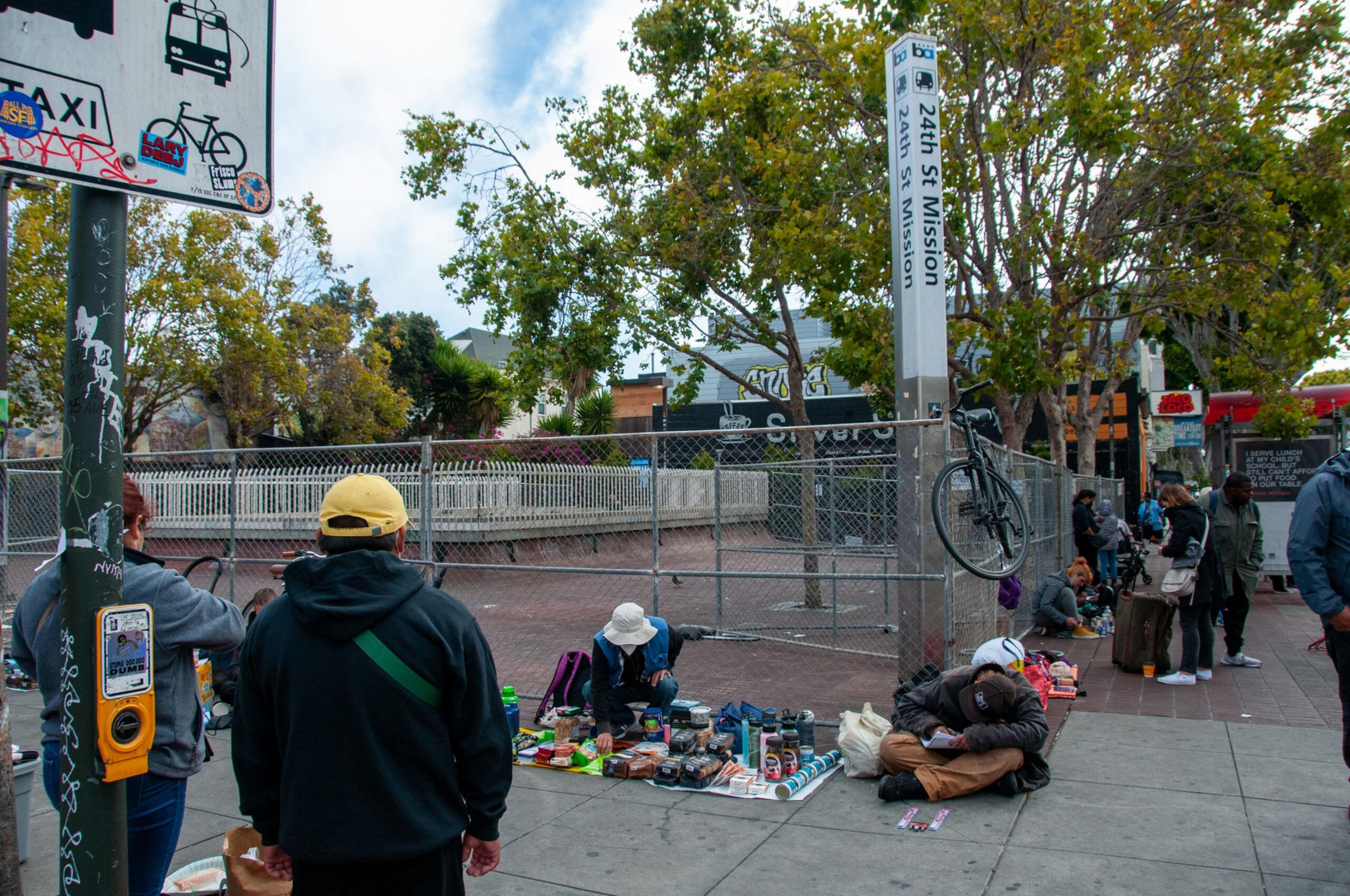Gov. Gavin Newsom on Tuesday signed legislation aimed at cracking down on the public sale of stolen merchandise in California.
Mayor Daniel Lurie and state Sen. Scott Wiener (D-San Francisco) applauded the law’s passage. But the state legislation allows city supervisors to pass an ordinance to crack down on sidewalk vendors dealing toiletries, snacks, and anything else with an unclear provenance.
In other words, this is an incremental development as the city once again changes course when it comes to curbside commerce.
Despite the knickknacks on offer at tables along Mission Street, the sale of stolen goods was already against the law. And the city has made other attempts at eliminating vending, such as a complete ban along Mission Street (opens in new tab) in 2023 and placing fencing around the 24th Street BART plaza, (opens in new tab) where wheeling and dealing was taking place, in 2022.
What is new is that the city now has a chance to counteract a decision in 2018 that decriminalized street vending across California.
Senate Bill 276, authored by Wiener, enables the city to issue citations, pursue misdemeanor charges, and confiscate stolen goods from vendors who cannot provide proof of purchase. Under an urgency clause, the law goes into effect immediately.
“This law gives San Francisco a new tool to put a stop to the sale of stolen goods on our streets — which pushes out legitimate street vendors and creates severe safety issues,” Wiener said in a statement.
“Organized crime started pushing our legitimate street vendors out,” he added at a press conference Tuesday in the Mission. “We started to see retail theft, the sale of stolen goods on our streets, obviously shoplifted goods, creating an atmosphere of chaos and at times of violence.”
Lurie praised the legislation as a critical tool for public safety.
“The illegal sale of stolen items makes it harder for honest vendors to do their jobs,” the mayor said. “It drives hardworking people out of spaces where they’ve spent years building their livelihoods.”
Left unsaid amid the policy celebration was that the law targets 2018’s Safe Sidewalk Vending Act, signed by then-Gov. Jerry Brown.
Hailed at the time, that law decriminalized vending and required cities to assign agencies other than the police department to regulate merchants. In San Francisco, it became the responsibility mainly of the Department of Public Works.
But in the aftermath, especially during the pandemic, street vending flourished and became another example of the city’s supposed downward slide.
Under the new law, there is a two-step enforcement process. The Department of Public Works must first issue written warnings to vendors suspected of selling stolen goods. Police can then take action if vendors ignore the warning and cannot produce receipts for their merchandise.
Capt. Sean Perdomo said the San Francisco Police Department will create a shared database with DPW to track warnings and coordinate enforcement.
“We’re going to expedite these projects,” Perdomo said, adding that freed-up overtime budget from the recent removal of a command van at Mission and 16th streets will fund increased patrols.
The Mission Street Vendors Association strongly supported the legislation, with members traveling to Sacramento six times over two years to testify at committee hearings.
Gladys Andino, speaking on behalf of the association, said illegal fencing harms legitimate entrepreneurs and creates unsafe conditions.
William Ortiz-Cartagena, founder of community organization Clecha, celebrated the law as protection for small businesses.
“Street vending has always been part of the San Francisco and the Mission district culture,” Ortiz-Cartagena said. “It sends another clear and loud message that criminal activity will no longer be tolerated.”
Wiener credited the persistence of street vendors and community organizations, including Mission Neighborhood Centers and Galería de la Raza, for the bill’s success after an attempt a year ago.
San Francisco operates a low-cost permitting system for legitimate street vendors, with most applicants qualifying for fee waivers.
